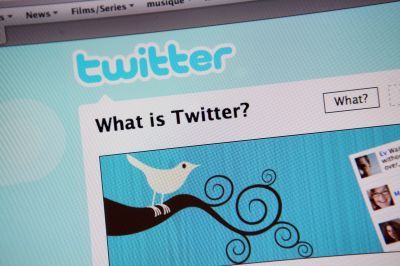Reporters put Twitter, Facebook to 'Big Brother' test

Five journalists plan to lock themselves away in a French farmhouse with access only to Facebook and Twitter to test the quality of news from the social networking and micro-blogging sites.
Twitter and Facebook's use as news-breaking tools has been highlighted over the past year, particularly during opposition protests in Iran that many media described as a "twitterised revolution."
This month, Twitter once again played a key communications role in quake-hit Haiti, with users sending harrowing personal accounts, heart-rending pictures and cries for help.
But how would the world look if viewed only through the prism of these sites, whose phenomenal growth has been fuelled by smartphones and, for Twitter, online bursts of 140 characters?
Are these social media - which between them have nearly 400 million users - really the serious threat to established media they are often said to be?
Those are the questions the five reporters hope to answer when they retire for five days from February 1 to a farmhouse in France's southern Perigord region.
When they arrive they will be relieved of their smartphones and will be given mobiles that cannot connect to the internet, and will then be reminded of the strict rules that ban television, radio and newspapers.
"We will give them five computers with blank hard drives," said Francoise Dost of the RFP French-language public broadcasters association, which is organising the experiment.
"They have agreed to be linked to the outside world only through Twitter and Facebook. No web surfing is allowed," said Dost.
The young guinea pigs from Canadian, French, Belgian and Swiss radio stations will each go on the air on their respective channels to comment on the news that they have found.
"This experiment will enable us to take a hard look at all the myths that exist about Facebook and Twitter," said Helene Jouan, a senior editor at France Inter, one of the stations that is sending a journalist.
"Our aim is to show that there are different sources of information and to look at the legitimacy of each of these sources," she said.
Nour-Eddine Zidane, who will be France Inter's guinea pig in the experiment, said he was already a regular user of both Facebook and Twitter.
"I use them for two different functions. Facebook is for friends, and Twitter I use as an alert system, because you must always be careful about it," he said.
He noted that the death of a senior French politician, Philippe Seguin, was recently first made public on Twitter, but pointed out that a tweet about a computer meltdown in French post offices quickly proved to be false.
Such hoaxes are common on Twitter and Facebook, with one this week saying that US airlines were flying doctors and nurses to Haiti free of charge to help with relief efforts.
Reputable media organisations will always check such stories by phoning the parties involved or checking against other sources, such as news agencies, online media or their own reporters.
But trying to sort the wheat from the chaff without access to these other sources will be a difficult task for the four men and one woman confined to the farmhouse in Perigord.
They will be telling how they manage - or perhaps fail - on the airwaves and in a communal blog to which they will post.
Join our commenting forum
Join thought-provoking conversations, follow other Independent readers and see their replies
Comments
Bookmark popover
Removed from bookmarks